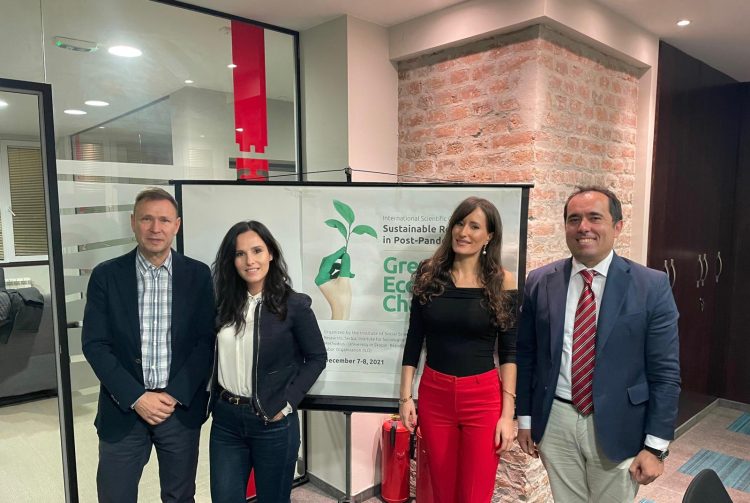An international scientific conference Sustainable Recovery in Post-Pandemic Era-Green Economy Challenges was held on December 7-8, 2021, organized by the Institute of Social Sciences (Center for Economic Research) Institute for Sociological, Political and Juridical Research, Ss. Cyril and Methodius-University in Skopje, Republic of North Macedonia and the International Labor Organization (ILO) via Zoom platform.
As expected economic consequences of climate change, employment rates decreased in traditional industries, households’ incomes as well. At the same time, huge capital investments are needed for economic transformation towards a green one. That requires either higher taxes which is less likely or increased public spending. The rise of public spending pushes up public debts and is usually followed by expansive monetary policy as is the case now in many countries. The risk of inflation is increasingly threatening to amplify redistribution of income between rich and poor citizens thus widening inequalities further.
The question is which path governments will choose, primarily in countries with the highest impact on the environment such as the US, China, India. One is to continue with pledges with little practical action. The alternative is a radical transformation of the development model. The major obstacle to economic transformation is a perception of decision-makers that transformation towards environment protection may hurt economic growth. Thus the key question is if economic development and environment protection are in conflict or not.
The conference discussed interdependence between pollution measured by greenhouse gases emissions per unit of GDP and the level of economic development measured by the rise of GDP per capita. If a green policy requires sacrificing economic development, it is hard to expect most countries to implement expensive environmental standards. However, if the two strategic goals such as reduction of pollution and economic development are not confronted then we could be more optimistic regarding our future.
A special section of the conference was dedicated to how EU countries responded to the European Green Deal in sector of critical importance such as energy. Moreover, it was discussed how to promote economic development sustainably with investments in natural capital and renewable energy sources. Our speakers presented what green policy levers are available to governments to stimulate green growth such as those affecting agriculture policy, food consumption. Public procurement is recognized as a potentially powerful instrument for promoting green growth. However, levels of green procurement uptake were different among different levels of administration.
Increasing employment in some fossil fuels productions such as coal mining seems threatening to less-educated and lower-paid workers in other industries. In the US wages of highly educated workforce recovered from pandemic impact much faster than of the less educated ones that are still lagging behind levels in the pre-pandemic period. Will new “green” industries be able to absorb surpluses in the labor market? Would risks and burdens of transition remain unevenly distributed not just between employers and workers, but between different categories of workers thus increasing inequalities in the future? All those topics were discussed in the session dealing with green jobs and labor market transitions.

